Хаас за Китай
Ромен Грожан:
One thousand grands prix – that’s quite a number. From May 1950 at Silverstone to April 2019 in China, Formula One has seen an incredible transformation. What’s it like to be a part of this sport and a participant in such a milestone event?
It’s great. I’ve been following Formula One for a long time – not since the 50s, obviously – but I’ve been in love with the sport since the early 90s. Reaching 1,000 races for Formula One is very impressive. When they started, I’m sure they didn’t think it would come this far. It’s pretty impressive. It’s going to be a great grand prix in China. I’m looking forward to the event and, hopefully, some good luck.
What was it about Formula One that first made you a fan of the sport, and how old were you when you began following Formula One?
I was around seven years old when I really began to follow Formula One. I was watching Alain Prost and Ayrton Senna racing. It was great to watch. My dad was passionate about racing cars, but as soon as I saw it, I fell in love with the sport. It was the look of the cars, the sounds, the speed – I loved all of it.
When did you transition to just being a fan of the sport to wanting to actually be a part of the sport?
For a long time in my career, I was driving because I loved it. It was more for fun than thinking, ‘I would make it to Formula One.’ When I won the GP2 Asia Series, that’s when I thought, ‘Well, why not?’ If I could win GP2, which was just one step below Formula One, I knew there could be a good chance there. That’s really when I realized I could make it to Formula One and have a chance.
There are only 10 teams and there are only 20 drivers. How hard is it to stay in Formula One?
It’s a tough sport. You need to be on top of your game every year. There are youngsters winning Formula Two every year, and they want to step up to Formula One. Experience is not something you can buy, which is great when you have some. It’s one of the most unique jobs in the world.
Rich Energy Haas F1 Team is still the youngest team in Formula One, and the Chinese Grand Prix marks just its 65th grand prix. Yet in just four years, the team is battling at the top of the midfield with the Formula One establishment that has decades more experience. How are you doing it?
The team is doing really well. I remember from day one when we started, I thought we were up to speed. Now from where we are, I see we weren’t up to speed at the time. The team’s been growing year-on-year and we’ve established ourselves as a very strong team. Once again, this year we have a very strong car. We’re here and we’re ready to fight. People have got to count on us because we’re fast.
How do you see the Haas VF-19 performing in Shanghai following a weekend of two parts in Bahrain, with strong qualifying pace but slower than expected race form?
Bahrain wasn’t our best showing in terms of race pace. Unfortunately, that was the feeling I had from the Friday of the weekend. We didn’t quite manage to get on top of it. Saying that, I didn’t do much of the race, so it’s hard to judge if what we had done on my car was good enough. I think China’s going to be great. It’s a very different circuit. I think we’ve got some good tools to get ready for China and our testing in Bahrain has been another good opportunity to learn a bit more about what happened in the race there. It has to be tire-usage related because the car is the same as we had in Melbourne and in preseason testing, where we were fast and we were fast again in qualifying in Bahrain. We’ve got the downforce and we’ve got the balance, we just need a little bit more cooperation on the tires. If we can process the information from testing, we should be fine for the race.
You’ve had three point-paying finishes at Shanghai and all of them came from a top-10 starting spot. It shows how important qualifying is, but it also seems to showcase your talents. Is there something about Shanghai that plays to your strengths?
Shanghai is a tricky track because it’s very different from the early stages in the year. It’s a front-limited circuit, meaning that the car needs to work well with the front tires. If it doesn’t, then it gets very tricky. Overtaking in Shanghai is not impossible. There’s the long backstraight with DRS helping overtaking maneuvers. In general, if the car is good in qualifying, the race should be quite good too. If not, then in the race you’re going to struggle. If you qualify in the top-10, you should finish in the top-10. If you’re not, then it’s harder. I’ve had good cars in Shanghai, therefore I’ve been able to score points.
Кевин Магнусен: One thousand grands prix – that’s quite a number. From May 1950 at Silverstone to April 2019 in China, Formula One has seen an incredible transformation. What’s it like to be a part of this sport and a participant in such a milestone event?
It’s great to be part of this sport. It’s been my dream since I was a child. I’m looking forward to celebrating the 1,000th grand prix in China.
What was it about Formula One that first made you a fan of the sport, and how old were you when you began following Formula One?
My dad was racing in Formula One when I was a child, so I was looking up to him. Formula One became my passion. It’s very much heritage from my dad. I was very young when I went to my first Formula One race – probably not even a year old – but I’d have been around five or six years old when I first realized just how cool it was.
When did you transition to just being a fan of the sport to wanting to actually be a part of the sport?
I’ve known ever since I was a child that Formula One was what I wanted to do. It’s always been my ambition and my goal to be a part of the sport.
There are only 10 teams and there are only 20 drivers. How hard is it to stay in Formula One?
It can be tough. I’ve had a bit of a rollercoaster career myself, at least in the first few years of my Formula One career. Once you get settled in the sport and you get a certain amount of experience, that can help. I’ve now done four seasons in Formula One, this being my fifth year, so I’m pretty settled in Formula One. I don’t think about that aspect anymore.
How do you see the Haas VF-19 performing in Shanghai following a weekend of two parts in Bahrain, with strong qualifying pace but slower than expected race form?
We had very strong qualifying pace but, unfortunately, the race pace wasn’t as strong, which was very disappointing for the whole team, of course. Fortunately, we had the test after the race which will have allowed the team to evaluate and, hopefully, find some answers from our weekend.
You come into Shanghai with back-to-back top-10 finishes in the Chinese Grand Prix. In fact, your eighth-place drive in 2017 earned your first points as a Rich Energy Haas F1 Team driver. Do those past performances give you added confidence leading into this year’s race?
Each race is different every year. You come with a different car, a different package. It’s not like you can look at past results and say that it gives you confidence, as such. I guess some tracks suit you better than others, but I wouldn’t say China is a standout, really. It’s a pretty standard race. We’ll go about it in the normal way to try and get the best possible result.
Гюнтер Щайнер: One thousand grands prix – that’s quite a number. From May 1950 at Silverstone to April 2019 in China, Formula One has seen an incredible transformation. What’s it like to be a part of this sport and a participant in such a milestone event?
It’s an honor for Rich Energy Haas F1 Team to be a part of it. We’re the youngest team in the sport, and to be here when the sport reaches such a milestone, it’s an honor. Formula One is one of the biggest global sports. It’s been there a long time, so we should celebrate this.
What was it about Formula One that first made you a fan of the sport, and how old were you when you began following Formula One?
I think I was around seven when I started watching Formula One. It was all about the noise and the speed, at the time. The cars were very cool. Throughout my career, I always kept an eye on Formula One, and then I was eventually able to be a part of it.
Rich Energy Haas F1 Team is still the youngest team in Formula One, and the Chinese Grand Prix marks just its 65th grand prix. Yet in just four years, the team is battling at the top of the midfield with the Formula One establishment that has decades more experience. How are you doing it?
There’s no big secret. We’ve got a good team of people and they’re very dedicated. They work hard. That’s how we’re doing it. We always try to do the best with what we’ve got. We all like to be doing what we’re doing. We enjoy it, and that’s why we can achieve the results.
What’s your reaction when people refer to Rich Energy Haas F1 Team as a satellite team to Scuderia Ferrari?
I don’t really care. Some of the people that say that, I don’t really know what they mean by it. I think they don’t know what they mean with it. It’s normally the people that cannot understand why we’re doing such a good job. They just say we’re copying Ferrari. There are clearly written rules – what you can and can’t do – and we do everything to the rulebook. I don’t really care if they have a bad opinion about us.
Do you think there would be as much talk about satellite teams if Rich Energy Haas F1 Team was at the bottom of the midfield instead of the top?
Nobody would care if we were at the bottom. Everybody would be happy. That’s what everyone was expecting. That’s where they thought we would be when we got into Formula One. It’s developed over the years with people getting more critical. It goes hand-in-hand with our classifications. After a while, you get used to it. You live with it and don’t care.
In each year of is existence, Rich Energy Haas F1 Team has become better – more efficient, more polished – and it has resulted in a faster racecar. Is the Haas VF-19 the best racecar the team has produced?
I would say so, but not only the car, the team is getting better. That’s normal, as you learn over time. The only thing you cannot buy is time. You have to give yourself time to get better, so that’s what we’re trying to do. As long as we keep on improving, we’ll be good.
What makes the Haas VF-19 so good, and how do you see it performing at Shanghai?
It’s a good car, but we still need to find where we really are. It looks like we’re in the top group of the midfield. Obviously, with the new regulations a lot of things changed. It’s an evolution. We used what was good on the previous car – we didn’t reinvent it – but we adapted it in a very good way to the new rules. Everyone did a very good job over the winter. I expect us to still be in the upper midfield in Shanghai.





















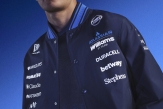
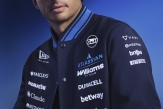
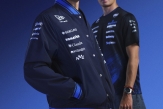
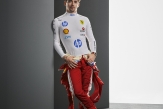
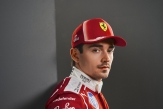
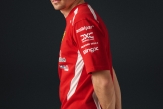
.jpg)
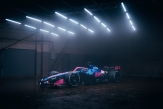

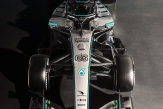
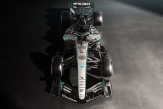
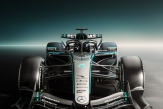
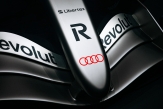
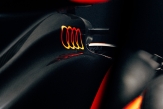
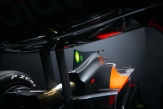
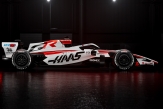
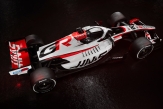
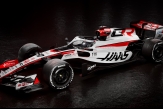
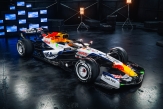
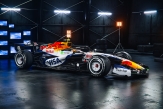
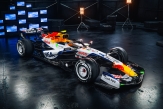
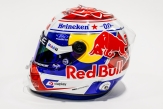
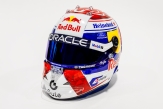
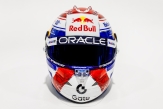
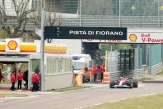
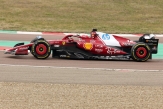
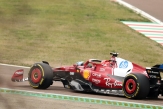

02/12/2025 от Огнян Тенчев (drJeckyll), няма коментари